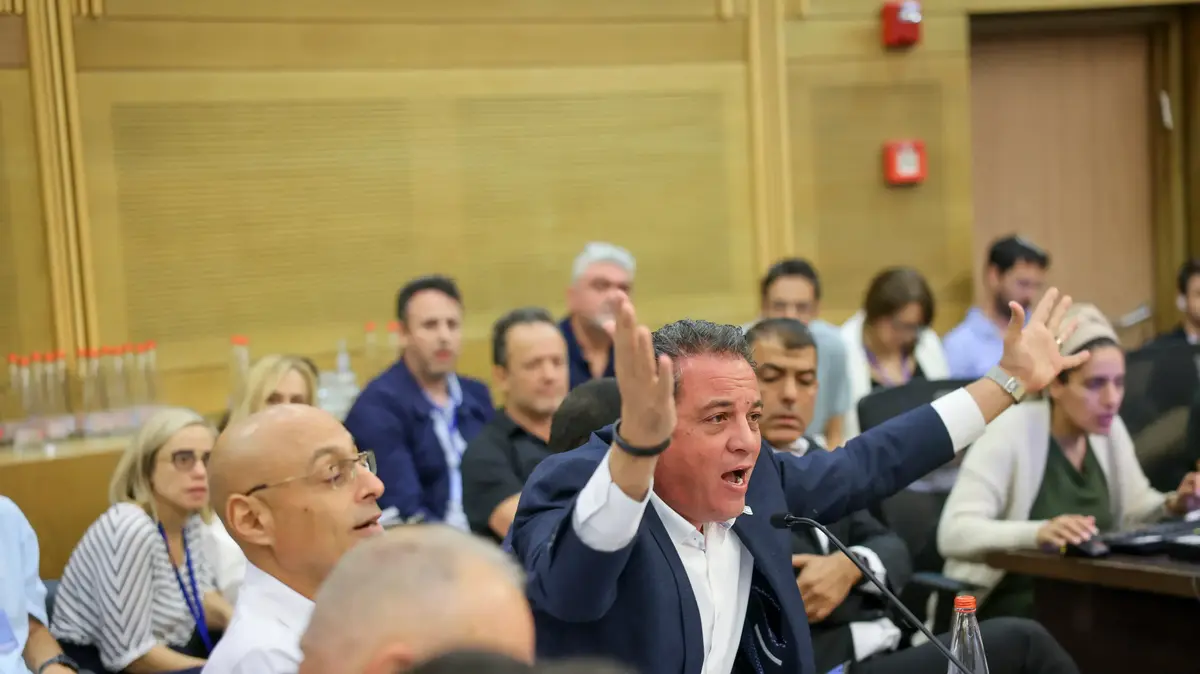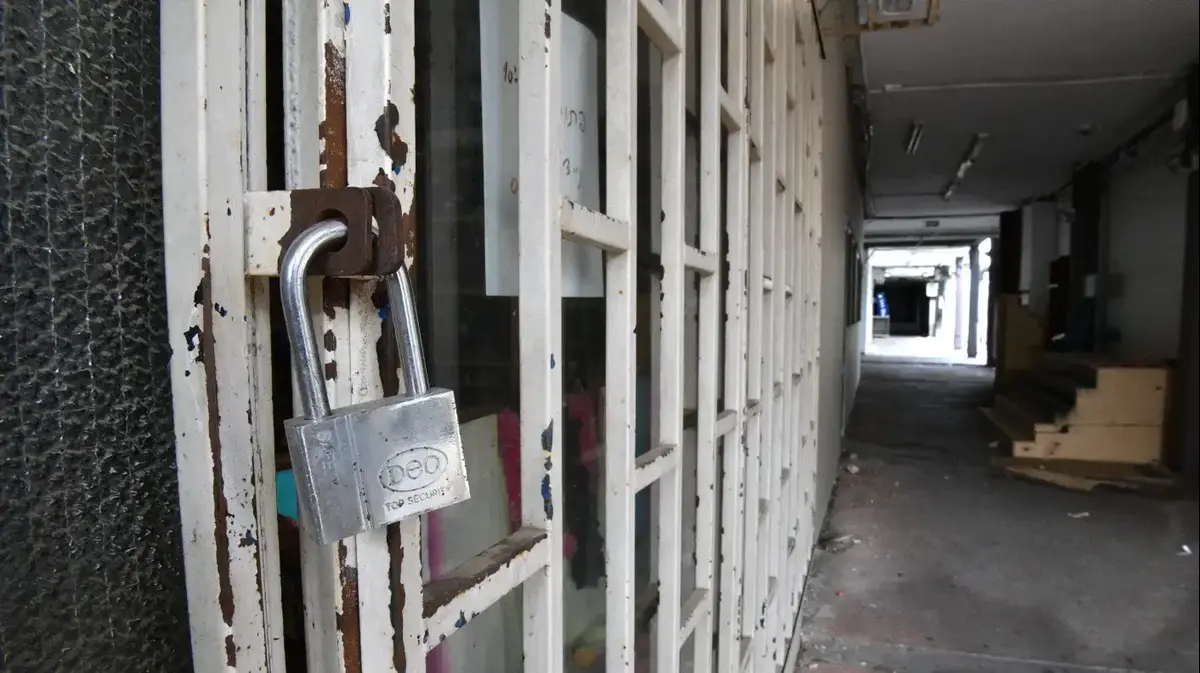Leftovers from the corona or a new business model? (Photo: ShutterStock)
Two weeks ago, the Wall Street Journal published one of the most sensational pieces of news in the labor market, which may herald what is going to happen in the world, and also here in 2023. The newspaper reported on more and more high-tech and start-up companies, who were fed up with the hybrid work that was common during the Corona period and remained even after it , and the big ones among them even implore the workers to come to the offices.
In San Francisco, one of the companies that urged its employees to come to the office, remained empty.
In 2022, according to published data, office occupancy in American companies will remain below 50%.
The employees' claims may be understandable, some claim that working in the office is less efficient, some do not want to waste their time in traffic jams, but it is clear that the trend in the coming year, at least on the part of the employers, is expected to reverse, claiming that coming to the office has a close connection with a developed organizational culture.
You could say we've exhausted almost every narrative when it comes to hybrid work.
Remote work, combined work, a fixed day of the week that is worked from home or a few days of the employee's choice.
The employers, for their part, offer fewer opportunities for flexibility in the past year as there was a little after the closures, but the demand for hybrid work with an emphasis on flexibility and working from home is actually increasing.
The Washington Post published that 60% of American high-tech companies are ready at this stage to maintain the flexible policy, but the global crisis in industry and the large layoffs have put the reins back into the hands of the employers.
Many people talked about the silent resignation phenomenon, but according to a report published last July, it turned out that 70% of those who left their job, regretted it.
Aviv Hawker, co-founder and VP of sales at FADDOM (Photo: Noa Gutman)
A home for ideas
And what does it look like in Israel?
Aviv Hawker, co-founder and VP of sales at FADDOM, a company
that deals with mapping applications in the cloud, says that they have returned to almost full-time office work. And even better, everyone has the ability to talk to other professionals in the company in a way that is faster and coordinate conversations that sometimes take a while to get to."
Hawker explains that as part of the belief in the combination of work life balance, they do a concentrated and regular day in which the entire team works from home. "On days when the office is Open it feels full, and it is fertile ground for new ideas.
We see it as endless brainstorming, and when someone is at home with himself, doing his individual tasks and finishing he is alone.
Here, after he does his tasks, he enters into a disruptive brainstorming session with the team."
How do people accept that?
"First of all, people have private lives and they can combine them in any way. If you have a technician who can come exactly on the day you have to be in the office, you will have the freedom to work from home, but in general in terms of a company that wants to move forward, and especially when the market gets a little more difficult, The results are what's important. And by the way, the results are also in employee retention. We make sure that the employees have a pleasant and fun time coming to the office, and we noticed that you can take into account if someone is going through a difficult period in their personal life or even at work and is considering looking for another job, when you are in the office with them. Compared to an employee and a manager who don't see each other for a long time. In the past, a situation could arise where something happened to an employee, and his manager wouldn't even know it for a long time."
How hard was it to get the wheel back?
Many workers, who discovered that it is possible to do the same without standing in traffic jams
"This is something that, in my opinion, also comes with the desire of the employees. We have seen employees who are happy to be in the office, and we of course make sure that they are happy, and put a focus on everything related to entertainment and fun and lunches, and sometimes happy hour at the end of the day. There is always music in the background, and we screened here the The World Cup. We see a sense of commitment to society that is expressed in a better way than anyone who sits at home and sinks in front of their computer."
From your experience, what will the job market look like in 2023?
On the one hand, the high-tech crisis, on the other hand, there is talk of silent resignations
"I think that now the situation is completely different, what you are talking about was true six months ago and more. Now the power is strong for employers in everything that has to do with employees, and I don't think that the phenomenon of silent resignations is any longer relevant. This, by the way, and it is important to note, is more relevant to very large companies. Employees understand that they have to prove themselves, because companies are becoming more efficient, and where there is room to cut, they will not hesitate to do so in order to reduce costs."
Hawker says that already in the job interviews and during the recruitment phase, employees talk about hybridity, and in the company they make sure to have interviews in the office and not on Zoom.
"Always and without exception when an employee comes to the office and sees the atmosphere and the people around him, he says he misses him. And for us at least this is a strong point in this matter."
What changed?
"First of all, the generation has changed, we are looking for more personal challenges and less permanence, therefore there are also upheavals and all kinds of rapid changes in the job market that changes frequently. And our generation definitely sees life and the small pleasures and it is also our challenge as an employer to know how to set the limits and provide both this and the benefit society. To bring some of the small pleasures to the workplace as well."
Workplaces didn't put in so much effort in the past, "a roof"
is an unequivocal gathering.
In general in the market, all employers, even what we call old fashioned, and older companies,
People who come to be interviewed talk about hybrids?
"Without a doubt, everyone asks, it's a topic that immediately comes up. Interviewees are less likely to give an ultimatum. And finally, we also have employees from Sderot and Jerusalem, Ashdod and Haifa, and we sit right on the train line, so even in terms of distances and accessibility, we don't see any problem."
at a special sale price
A revolution in the world of facial treatments: artificial intelligence and RF technology in a home device
Served on behalf of B Cure Laser
Omer Glass, CEO and founder of GrowthSpace, (Photo: GrowthSpace)
There is nothing like home
Compared to Hawker,
Omer Glass, CEO and founder of GrowthSpace
, believes that working from home is more effective
.
At the end of the day, we are a global company and we have many clients in the US, which means that I, as the CEO, expect my employees to come up for calls even at non-trivial hours, so for me to allow them the immediate flexibility during the day with the family and children."
Glass says that his theory is that work serves life and not Life serves work, therefore flexibility is important, "Besides, we see that the productivity of our employees when they are in their comfortable place is higher.
They don't have the distractions of traffic jams, or idle conversations at lunch, and this also allows us to employ talents who live in Kibbutz HaSollel or Arad, places that don't have easy access to Tel Aviv every day."
And what about the sense of commitment and the organizational culture?
"We have one day a week when we are in the office and that's enough. For me it's also Zionism. I can pay money from Tel Aviv, in Arad, in Acre and not just make it accessible to those who live in greater Tel Aviv."
What will the job market look like in 2023?
"There has been a lot of talk about quiet resignation, but I don't see that there is such a thing. Rather, in the opposite direction. We are in an era of productivity. If in 2022 we were in an era of crazy growth, and in Corona the era of remote work, today we mainly strive for productivity. The interest rate is much higher, less Capital is poured into the system, the companies need to become more efficient and since we work with large companies in all areas of the economy, I can tell you that I see the phenomenon in a similar way not even in high-tech. How do I do more with less."
Glass claims that the demand is higher because companies are cutting back, but where there is difficulty is in recruiting talent.
"Every company has its talents, the people who are the heart of the organization. There is fierce competition for this heart in the market. The cost of losing someone who is a special talent or a middle manager is very high, and it is very difficult to recruit these people to key positions. This means that there Less competition for juniors or jobs that are not related to the core, but for the core there is still competition, and like any competition in the end the employees vote with their feet and their power. If they want to work from home it might be a deal breaker for them. Against the people who have low demand in the market it is not There is, but those who have a high demand in the market will start to move, and these companies will be even more harmed."
Ariel Katz CEO of Unicorn Science Israel (Photo: Public Relations)
"We are in an era of productivity, but I believe that it should be stopped and immediately," says
Ariel
Katz, CEO of Unicorn Science Israel.
Productive at work.
From my point of view as a manager, I say that in recent years I see more emails, and more bug fixes than there were in 2019 and the volume of digital traffic, which is not always directly related to work by the way, reinforces this feeling among employees.
In contrast, with the managers, only 10% will testify that they feel that the employees are productive."
Where is the gap?
"They look at the world still through the glasses of 2019. The workers in the office? Did I talk to them today? Are they answering? They are at home, maybe they are doing something else at this time and more. Which caused the managers to start putting pressure on the workers who are stressed, producing a lot more work and the gap is only getting bigger And grew. And that's the paranoia. And that needs to stop in tomorrow's work environment."
How do you do it in practice?
"Let's say we help employees focus on what's important and not necessarily work the most. See what's happening with the employees, do a feedback loop. Once a year all organizations do a feedback loop. At Sysense we increased it to 4 times a year because I want to feel the temperature every quarter and improve. The thing This is critical and you need to look at it like data. Just as you make decisions about a product based on data, so you want to do it with the most critical thing, the human capital in the organization. I hope that in 2023 the paranoia will start to decrease."
Cute, not now - we are at work (Photo: ShutterStock)
The Next Generation
Katz explains that these differences in perceptions come from several levels.
"We are in the midst of intergenerational changes and I see this a lot in the field. This is something that first of all redefines the mix of work from home and the office. So you want satisfied employees because it is a critical resource, and also organizational culture and employee experience between the organizations because connection between people is important. Unlike in the past, it also requires a digital connection."
Isn't that what happened with Corona?
"No. It requires a new approach. It's not looking now at 2019 and seeing how we make a bunch of changes again so that we can work better. I argue that we need to clean the desktop and see how we do it again. The world has been restarted, but within this restart we now have to Create a new balance and not return to the world we know."
Katz adds that even after the flexibility and balance, the goal is to create an optimal work environment.
"You have to internalize the fact that in the end people come for each other. There are organizations that make sure that the employees come once or twice a week, but you don't have to force them. If you look at it from a place of human social capital, you have to think about how to create the glue of people who will want to come. I don't want people to They will come to the office and write code, they can do that at home. I want them to come and talk."
And how is this reflected in the applications of new employees?
"First of all, you should put on the table the fact that 2021 was a problematic year when it comes to hiring employees. Even today, when the situation is a little different, we don't always know how to keep them after that. This is another point to think about, we recruited and now the wise thing is to keep them in the workplace, make For them to understand that this is a place where they can grow, to be who they are even if there are goals that need to be met along the way. And this generation, the new generation Z, shows us the way forward, how employees should be rehired, and what their needs are that we didn't always know."
Of money
Tags
Working from home
the employment market
Corona















